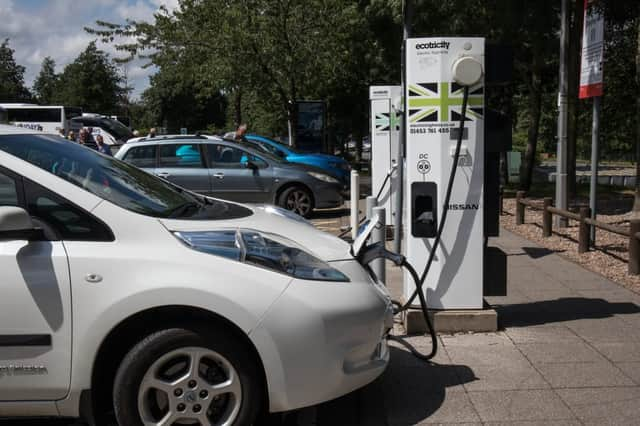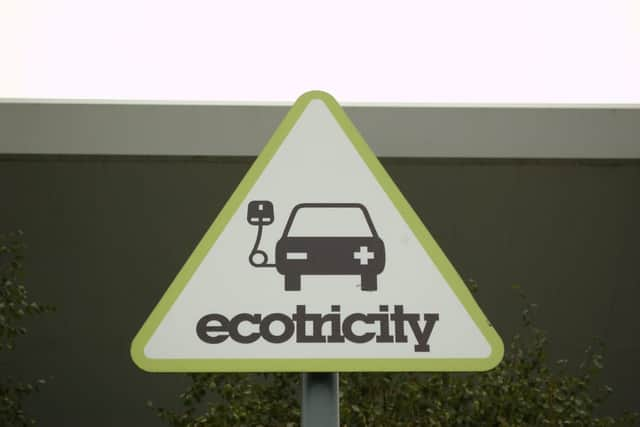Government to end Ecotricity stranglehold on motorway charging points


The Government plans to end Ecotricity’s monopoly on electric car charging at motorway service stations and force companies to ensure the infrastructure is reliable.
Ecotricity currently has exclusive agreements with motorway service station operators to install and operate electric vehicle charging stations. However, its monopoly has been criticised by EV owners and its hardware branded “outdated and unreliable”.
Advertisement
Hide AdAdvertisement
Hide AdSpeaking to EV consumer website Electrifying.com, Transport Minister Rachael Maclean said that as part of its £1 billion investment in charging infrastructure, the Government would open up motorway provision to other charger companies and put legislation in place to ensure the chargers were reliable.
She told Electrifying’s Ginny Buckley that the Government was planning a new wave of modern, high-speed chargers along the country’s motorway network, which would be easier to use and dependable.
She said: “We want it to be as easy to charge your car as it is currently to buy a tank of petrol. We don’t believe it is right for people to have to sign up to multiple apps and we want it to be easy and straightforward.
“What we are going to have is at least six high power chargers in every motorway service area by 2023. These will be, obviously, reliable ones, but they’ll also be rapid ones - 150kW or above.
“Beyond that, up to 2030 which is when we're going to phase out the sale of new petrol and diesel cars, we are going to have around 6,000 rapid charge points across A roads and motorway service stations.”
Asked by Buckley who would operate these new chargers, Maclean said: “It will be open. We want the private sector to come in so we’ll be taking the best commercial offer. We’re already seeing a massive amount of activity in this market. It’s going to drive an increase in performance.”


Under the Government’s plans, the chargers will be accessible to anyone with a contactless payment card, such as a debit card, and larger service stations will have up to 12 points offering up to 350kW charging.
Operators will also be bound by service level agreements, backed by legislation, which would ensure that points are available at least 99 per cent of the time, have 24/7 customer service support and include clear pricing information.
Advertisement
Hide AdAdvertisement
Hide AdMaclean said that the recently opened Gridserve facility in Essex was an example of the future of charging infrastructure she hoped to see around the country. The purpose-built EV service station has 36 rapid charging points and a modern service station.
She said: “We want Gridserves everywhere. That’s a great example of the kind of model that we expect to see absolutely everywhere.”
The RAC’s Rod Dennis welcomed the news that service station infrastructure was to be opened up to a wider market.
He said: “This is extremely welcome news as charging electric cars at motorway service areas needs to be fast, reliable and easy to pay for so drivers can make longer journeys with the minimum of fuss. It should also go a long way towards showing would-be EV drivers that ‘range anxiety’ is a thing of the past, further speeding up the switch to electric.
“Nothing is more frustrating to an electric car driver than the sight of an out-of-order charge point, so the fact that there will be a commitment to having chargers ‘in service’ will make a big difference. The promise of clear pricing is also important as drivers are used to knowing what they’d be paying before filling up thanks to petrol price ‘totems’ on forecourts.